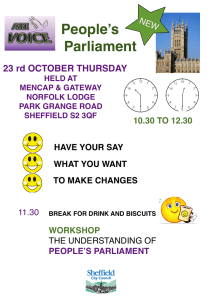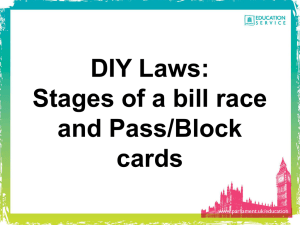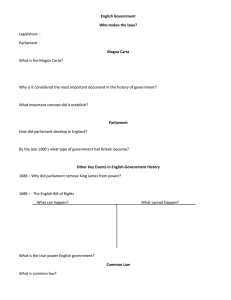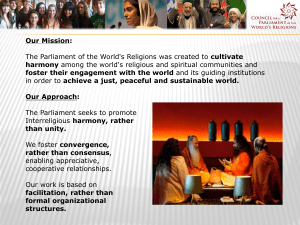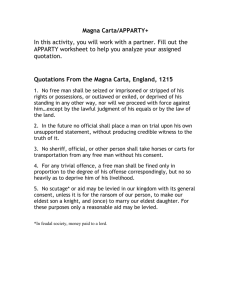Chapter 14 Primary Documents
advertisement
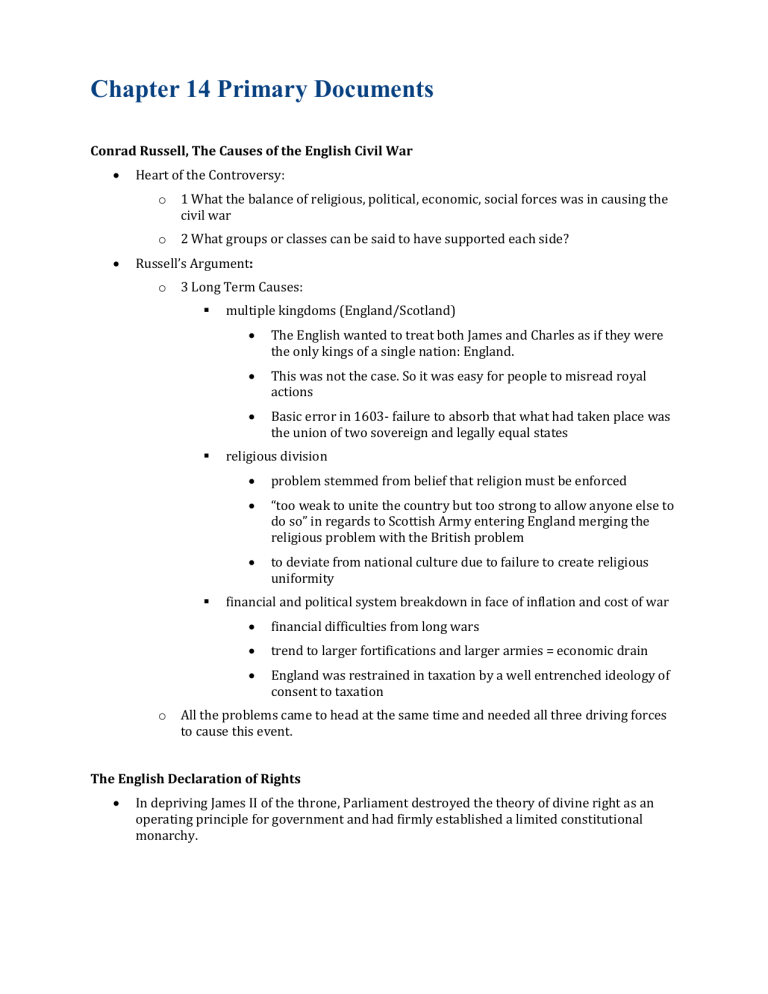
Chapter 14 Primary Documents Conrad Russell, The Causes of the English Civil War Heart of the Controversy: o 1 What the balance of religious, political, economic, social forces was in causing the civil war o 2 What groups or classes can be said to have supported each side? Russell’s Argument: o 3 Long Term Causes: o multiple kingdoms (England/Scotland) The English wanted to treat both James and Charles as if they were the only kings of a single nation: England. This was not the case. So it was easy for people to misread royal actions Basic error in 1603- failure to absorb that what had taken place was the union of two sovereign and legally equal states religious division problem stemmed from belief that religion must be enforced “too weak to unite the country but too strong to allow anyone else to do so” in regards to Scottish Army entering England merging the religious problem with the British problem to deviate from national culture due to failure to create religious uniformity financial and political system breakdown in face of inflation and cost of war financial difficulties from long wars trend to larger fortifications and larger armies = economic drain England was restrained in taxation by a well entrenched ideology of consent to taxation All the problems came to head at the same time and needed all three driving forces to cause this event. The English Declaration of Rights In depriving James II of the throne, Parliament destroyed the theory of divine right as an operating principle for government and had firmly established a limited constitutional monarchy. The declaration of rights compelled William and Mary and future monarchs to recognize the right of the people’s representatives to dispose of the royal office and to set limits on its power. o “The pretended power of suspending of laws or the execution of laws by regal authority without consent of parliament is illegal” o “the levying money for or to the use of the crown by pretense of entitlement without grant of parliament for a longer time or in other manner shall be granted as illegal” o “right of subjects to petition the king and all commitments and persecutions for such petitioning are illegal” o “raising or keeping a standing army within the kingdom in times of peace unless it be with consent of parliament is illegal” o free election of parliament members Trevelyan, The English Revolution, 1688-89 two blows to monarchical authority proved to be turning points o civil war o execution of Charles II o glorious revolution o 2
